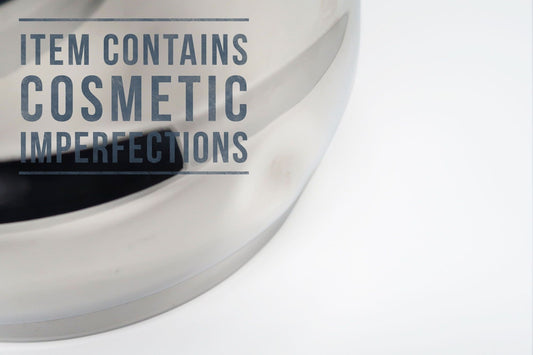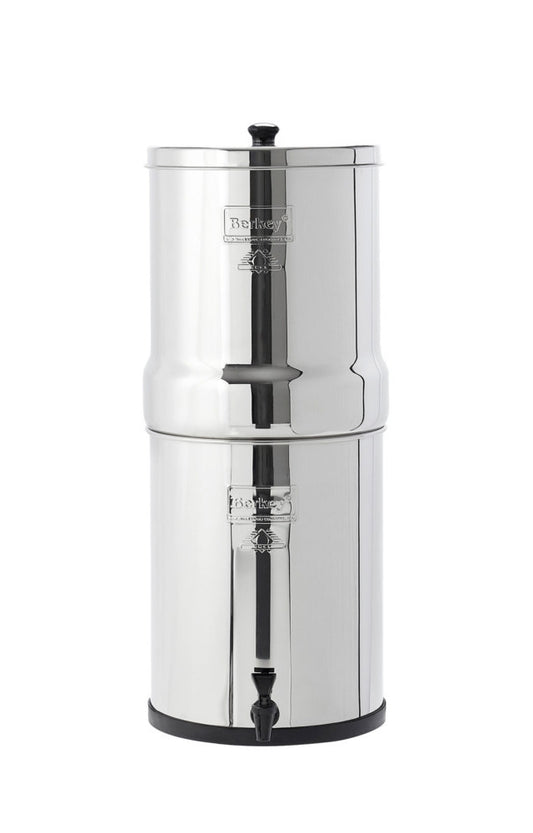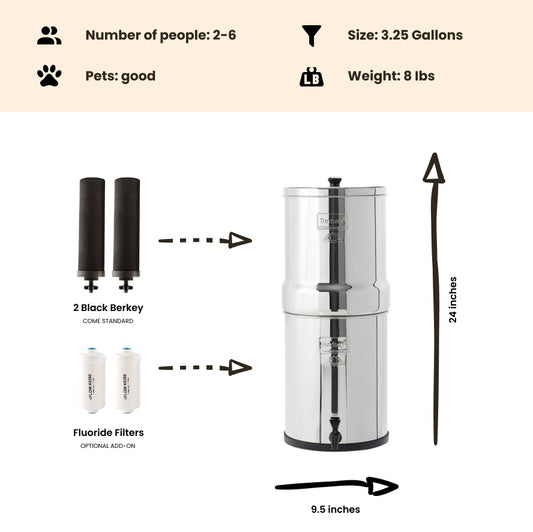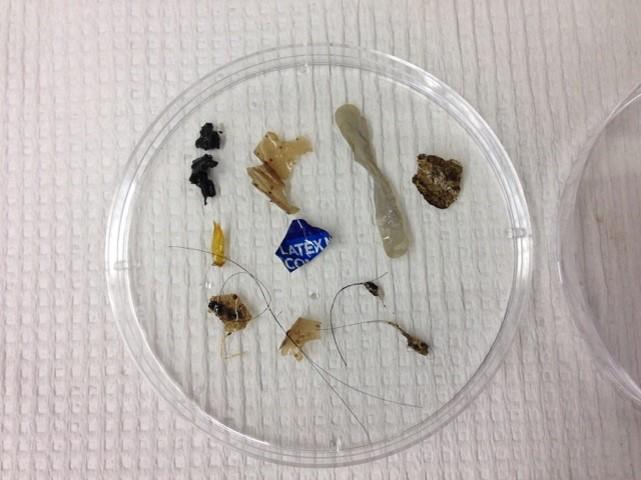
Wastewater Treatment Facilities Release Significant Amounts of Microplastics into Rivers
By Dan DeBaunShare
Microplastics are an emerging pollutant in our oceans, becoming an increasingly worrying environmental problem. Yet, while these tiny plastic beads originate from land-based sources, making their way to the ocean via rivers, very little is known about their abundance and impact on our freshwater systems. According to a new study, these tiny bits of plastic escape through wastewater treatment filtration mechanisms, and are discharged into rivers where they can pose a risk of contaminating drinking water and food sources.
Microplastics are defined as tiny bits of plastics with a width of less than 0.20 inches (5 mm) — that are now recognized as an emerging ocean pollutant that is harmful to marine organisms.
Yet while most of the debris that enters our oceans — including plastics — gets transported there via rivers, we have very little understanding about how these microplastics enter rivers or how they affect river ecosystems, says Timothy Hoellein, an assistant professor at Loyola University Chicago.
Many communities rely on rivers as a source of drinking water, notes Hoellein; they are also important habitats that support a variety of wildlife. Fish and freshwater invertebrates ingest these tiny bits of plastic, which then move up the food chain, ultimately ending up in the fish we eat. It has already been recognized that microplastics floating in the oceans harbor toxic pollutants as well as bacteria that can pose a health risk to animals and humans who ingest them. Microplastics in rivers pose a similar threat.
"Rivers have less water in them (than oceans), and we rely on that water much more intensely," Hoellein said.
In a previous study, Hollein found that water samples from a site downstream from a wastewater treatment facility had higher concentrations of microplastics than water samples from a site further upstream. Now, a new study of ten Illinois urban rivers conducted by Hoellein and his research team supports these initial findings. While the study estimates that around 90% of the incoming microplastics is being arrested by the wastewater treatment facilities, due to the exorbitant amount entering the treatment plants, the 10% that escapes into rivers (estimated between 15,000 - 4.5 million particles per day per plant) is still significant.
In 8 out of the 10 rivers studied, microplastics originated from wastewater treatment facilities. The new study found that these micoplastic particles harbored bacteria that posed a greater health threat than bacteria found in the river water from which they were extracted.
"[Wastewater treatment plants] do a great job of doing what they are designed to do - which is treat waste for major pathogens and remove excess chemicals like carbon and nitrogen from the water that is released back into the river," Hoellein said. "But they weren't designed to filter out these tiny particles."
The study also shows that microplastics remain in the environment for long periods of time, and very often are transported a long way from their original source. As these microplastics are transported downstream they are introduced into different ecosystems, making their way through multiple foodwebs in each of these systems.
According to Hoellien, scientists are currently trying to ascertain what percentage of plastic remains in rivers, and what percentage makes its way to the ocean. By studying microplastics in our rivers, scientists hope to gain a better understanding of the complete lifecycle of these tiny, but dangerous, bits of plastic — from where they originate on land, to how much ends up in our oceans.
"The study of microplastics shouldn't be separated by an artificial disciplinary boundary," he said. "These aquatic ecosystems are all connected."
-
Regular price From $302.00 USDRegular priceUnit price / per
-
Regular price $234.00 USDRegular priceUnit price / per
-
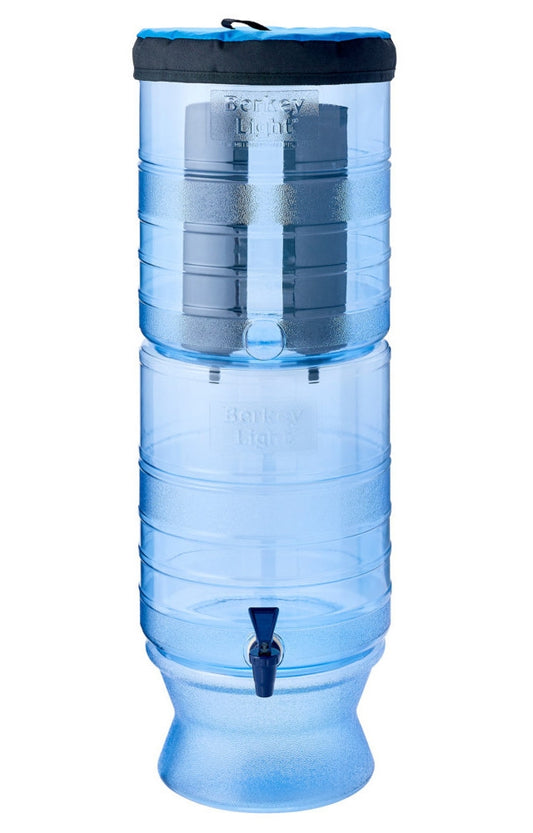
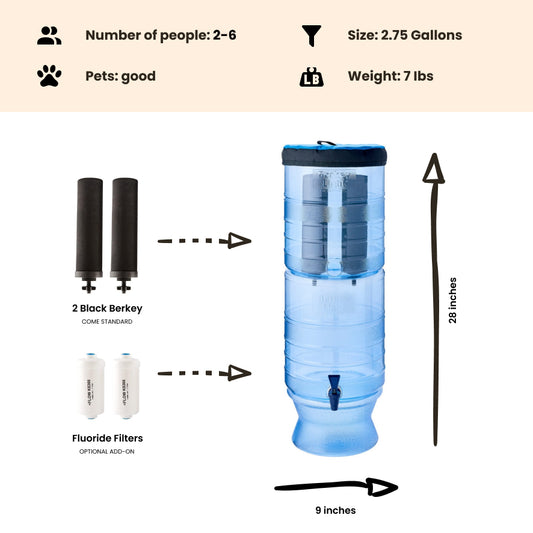 Sold outRegular price From $305.00 USDRegular priceUnit price / per
Sold outRegular price From $305.00 USDRegular priceUnit price / per -
Regular price $327.00 USDRegular priceUnit price / per
-
Regular price From $367.00 USDRegular priceUnit price / per
-
Regular price From $408.00 USDRegular priceUnit price / per
-
Regular price From $451.00 USDRegular priceUnit price / per

Dan DeBaun
Dan DeBaun is the owner and operator of Big Berkey Water Filters. Prior to Berkey, Dan was an asset manager for a major telecommunications company. He graduated from Rutgers with an undergraduate degree in industrial engineering, followed by an MBA in finance from Rutgers as well. Dan enjoys biohacking, exercising, meditation, beach life, and spending time with family and friends.
~ The Owner of Big Berkey Water Filters



